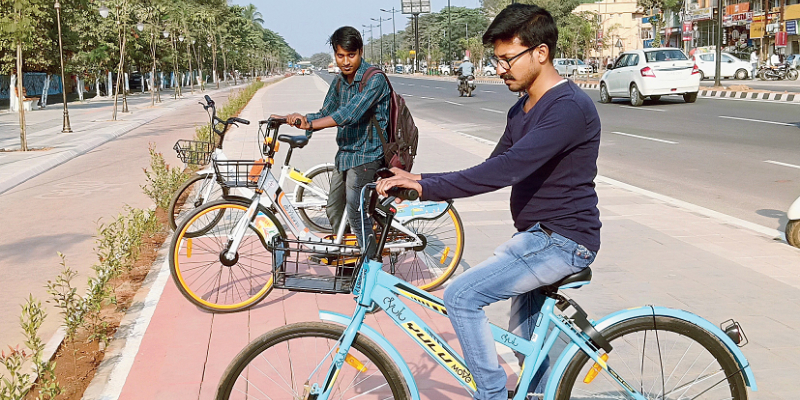Piyush Ranjan Rout
As urbanisation booms, cities accept congestion as the new normal. But traffic snarls cause air pollution, safety risks and losses in terms of accessibility, economic competitiveness, sustainable growth and social cohesion. If cities are determined to make themselves attractive and sustainable, they must respond to these challenges. A number of measures are available to address congestion and air pollution.
But none of these is more marketable than shared mobility resources such as car sharing, and none is more environment friendly than cycling. Bicycle sharing refers to rental schemes, wherein civilians can pick up, ride and drop off bicycles at numerous points across the city, often at automated stations.
The Public Bicycle Sharing Programme launched in Bhubaneswar is expected to reduce the use of private motorised vehicles and to make city streets more walkable and environment friendly, providing last-mile connectivity to users of public transport.
Bicycle sharing has a key role to play in the city’s transport future. Dockless bicycle sharing is a new business model that allows people to access a fleet of bicycles through a smartphone app. The system allows bicycles to be used for return as well as one-way trips wherein the user does not have to return the bike to a docking station.
Public bicycles in Bhubaneswar are a good supplement to mass transit such as city buses. About 2,000 such bicycles are placed at docks and can be rented by users using a mobile app.
Where bicycle sharing offers many benefits including flexibility in transportation and vehicular emission reductions, the most special quality of such programmes is the idea of sharing.
The welcome the programme has received in Bhubaneswar can be gauged from posts on social networks users are making. The programme is bound to bring more cyclists on to streets.
In 2004, only 11 cities had adopted bicycle sharing; but today, more than 1,500 bicycle sharing services of varying sizes and specifications are in operation in more than 70 countries across five continents. It is a win-win for governments and urban societies, and boosts green credentials of cities.
But bicycle sharing does have its own share of problems, too. Besides under-use, the system is also slow to expand. It has even led to political friction, as local governments have been unwilling to forsake parking space for bicycle docks.
Establishing a bicycle sharing system in Bhubaneswar presents tremendous challenges. This includes changing the mentality of people in favour of this mode of transport.
Roads in Bhubaneswar are not of the standards seen in the Western world. For instance, each component of an urban space in Europe serves a specific function. This is not the case in Bhubaneswar as spaces take on a vertical, multi-functional dimension wherein each function is segregated by time. Conflicts and cohabitation of users on sidewalks and in the streets is common in Bhubaneswar. Owing to this the Mo Bicycle programme faces an uphill task.
But an example that Bhubaneswar can look at is the success of the bicycle sharing system in Chinese cities. Perhaps Bhubaneswar’s experience will offer lots of lessons in developing a robust bicycle sharing programme.
On the whole, the programme offers positives for everyone involved. Rebranding something as conventional as city cycling in a way that embraces the philosophy of shared resource economies has been well accepted by the public and it is a timely investment for actively promoting sustainable transportation. Hopefully if Bhubaneswar comes up with strong and coherent plans with recognisable bicycle sharing programmes, it can form a powerful and brand image for this Temple City.
The writer is an Urban Management Practitioner. He can be reached on twitter @piyushrout.
